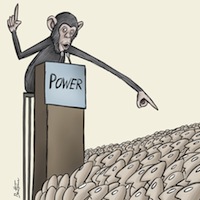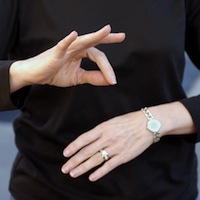Every person needs to communicate with other people, but the barriers and subtleties of our interpersonal communications often go undetected. In this section of our blog, we look at the latest interpersonal communication studies and critical theories to develop a better understanding of how people communicate face-to-face and through new technologies like social networking websites and text messaging systems. We will also take a look at small group interactions to learn how our interpersonal skills change and adapt to different situations. By understanding our interpersonal skills, our group communicative skills and how these skills can develop in response to new technologies, we can look for ways to positively treat interpersonal disorders and how to change our interactions with other individuals.

Are You a Sensor or an Intuitive? How Does That Affect Your Communication?
At some point in your life, you may have found yourself unable to get a point across to another person. This frustrating experience may have been a result of basic differences in the way individual humans perceive and process information.







